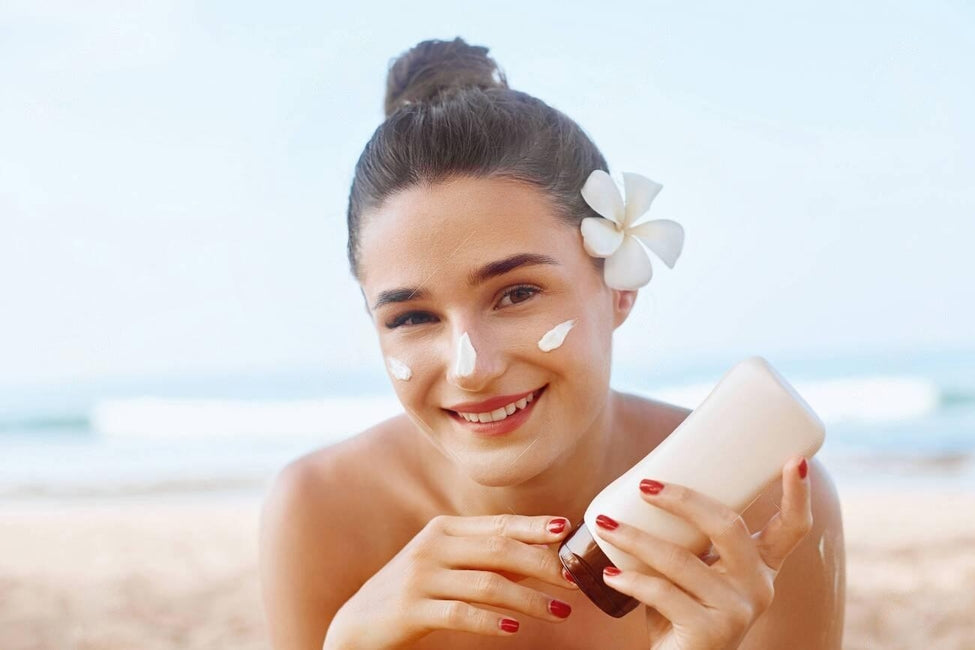Winter's chill has passed, and as the warmer days of spring arrive, don't be misled by the pleasant sun. It can be just as intense as in the summer peak, making it crucial to keep up with your sunscreen routine to shield your skin from damaging UV rays.
In this article, we'll tackle some widespread myths about sun safety and the risks of sun exposure without adequate SPF protection.
A staggering statistic reveals that two out of three Australians will face a skin cancer diagnosis by age 70. Australia's skin cancer rates are among the globe's highest, leading to nearly 2000 deaths annually. Yet, it's a largely preventable disease.
Australians are well aware of the sun's intensity, often applying SPF 30 or higher during sunny beach days. However, sun protection isn't only for summer. The Australian sun remains potent throughout the year, making it essential to safeguard your skin from UV rays to prevent skin cancer and premature aging.
Remember, even on cloudy or rainy days, sunscreen is crucial. It’s arguably the most effective skincare product, offering immediate protection and maintaining healthy, youthful skin over time. It's surprising not to use it daily, considering its benefits. Sunscreen isn’t just for summer; it’s a year-round necessity, especially in Australia, where UV rays are relentless, regardless of the weather.
Despite cloud cover, UVB rays can still reach us, making sunscreen the best defense for your skin.
After reading this, you might reconsider your daily skincare routine and never skip sunscreen again.
Why Sunscreen is Essential
Sun exposure is vital for vitamin D production, promoting stronger bones and elevating mood. However, excessive sun without protection can lead to skin and eye damage, immune system issues, and skin cancer, affecting even young adults.
Limiting sun exposure is key—seek shade, cover up, and always wear SPF sunscreen to block harmful UV rays.
Sunscreen contains ingredients that prevent UV penetration, reducing risks of sunburn, skin cancer, and premature aging signs. Broad-spectrum sunscreens shield against both UVA and UVB rays.
UVA rays can cause sunburn, DNA damage, and skin cancer. UVB rays, while mostly blocked by the ozone, are responsible for sunburn and play a significant role in skin cancer development.
Understanding UV Rays
UV, invisible and unfelt, is part of the sun's energy spectrum, including visible light and infrared radiation. It's particularly harmful to our skin and remains high even on cool, overcast days, reflecting off surfaces like water and snow.
Australia experiences some of the world's highest UV levels, capable of causing sunburn in just minutes on summer days.
UV radiation, present year-round, is categorized into UVA and UVB. UVA penetrates deep into the skin, causing wrinkles and aging, while UVB causes sunburn and is a major skin cancer contributor.
Staying UV-Safe
Monitor UV levels through weather forecasts and the Cancer Council’s SunSmart app, advising on sun protection measures. Even on "moderate" UV days, sunscreen is vital.
Midday sun is the strongest, but UV protection is necessary at all times.
Choosing the Right Sunscreen
Opt for Therapeutic Goods Administration-approved sunscreens suitable for your skin type, such as water-resistant, broad-spectrum SPF30 or higher. Regularly reapply, especially after swimming or sweating, and apply 20 minutes before sun exposure. Check expiry dates and store sunscreens appropriately.
Babies under six months should avoid sunscreen and sun exposure, using protective clothing instead.
Dispelling Sunscreen Myths
Myths about sun damage, sunscreen effectiveness, and skin cancer risk are prevalent. Understand that UV radiation causes sun damage, not temperature, and no sunscreen offers 100% protection. People of all skin tones need sun protection, and higher SPF levels don't justify extended sun exposure. Sunscreen is necessary even with makeup, and skin cancer risk isn't limited to sunbathers. Tanning, even without burning, indicates skin trauma and cancer risk. Lastly, mineral-based sunscreens with nanoparticles are safe and effective.





